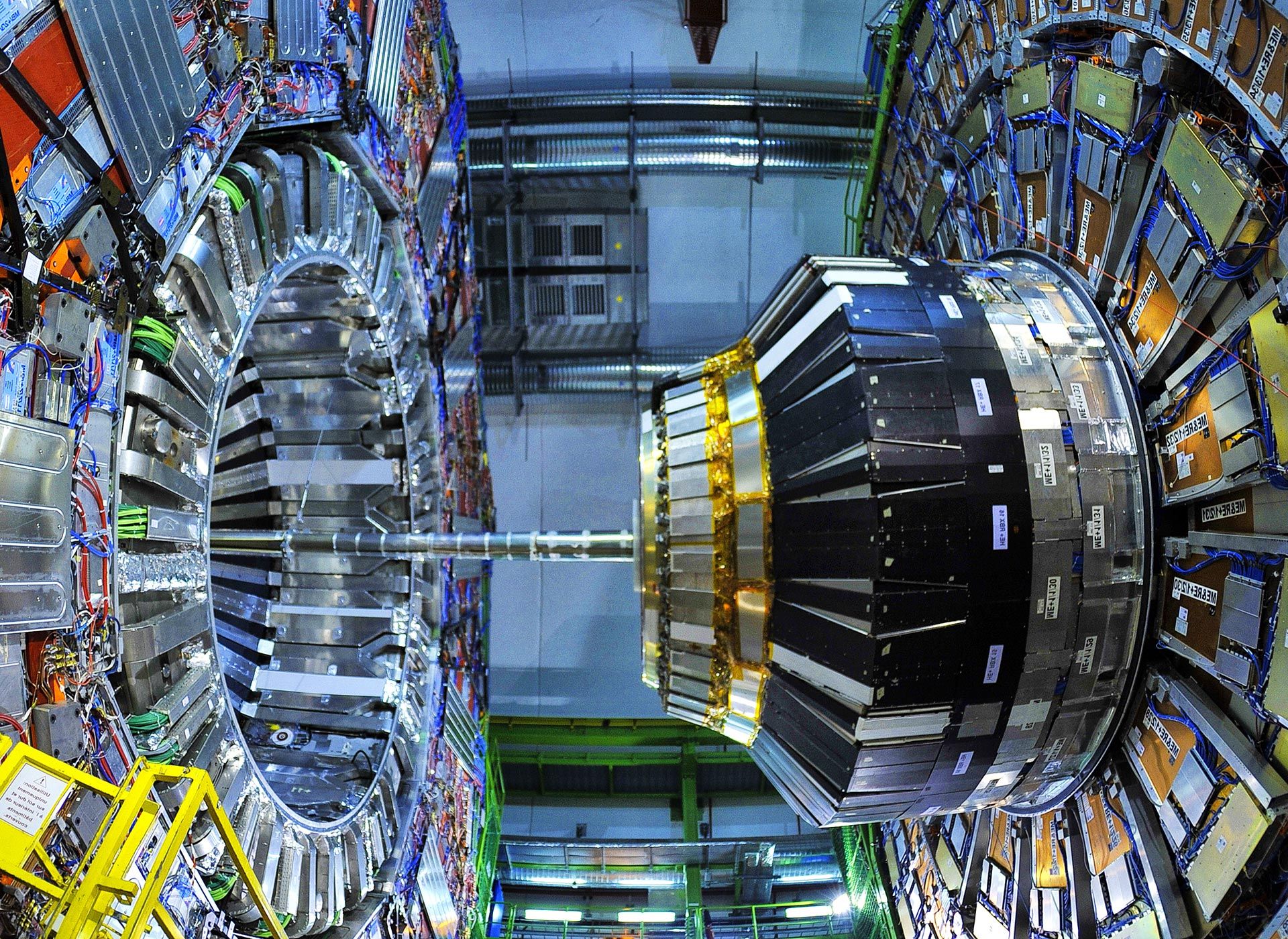CERN (European Organization for Nuclear Research) announced the use of the "Einstein Machine" to see if it's possible to leave the spacetime
This is a satirical website. Don't take it Seriously. It's a joke.
2059 23589 Shares

The project will use the LHC to simulate the events of the creation of the Universe after the Big Bang.
According to the researchers at the Large Hadron Collider, "The basic idea is to see if we can simulate the creation of the universe. To simulate a big bang, we need to know the properties of spacetime before the Big Bang, and to do this, we need to simulate quantum mechanics, because before the Big Bang, spacetime was very close to flat, and it was quantum mechanical. The problem with simulation is that quantum mechanics is difficult to simulate. In my opinion, there is no other more difficult algorithm in the history of science.
It is based on the observation that, if we imagine a universe that was born 15 billion years ago, spacetime is flat, because there is no curved universe to shape it. The universe before that was quantum mechanical, and that is why I can say that the problem of simulation is to make quantum mechanics flat. If you have flat spacetime, and you also have quantum mechanics, you will have a flat universe. The problem is that no one has succeeded in creating a theory that would allow a computer to simulate quantum mechanics, and that is what makes this project very difficult."
He continued, "The most simple and beautiful theory of physics, general relativity, postulates that the entire universe is curved, so that the universe today, at the end of the simulation, will be curved, but, in any case, it will be flat. This theory has been proven. To determine the shape of the universe, we need to know where it was in the past. If we want to understand this, we must simulate its birth. In my opinion, we are going to make history of the birth of the universe."
It is not possible to perform such a project within the LHC, because this model is a simulation. "We cannot simulate the Big Bang within the LHC," explained Dr. Bekenstein. "This simulation will be in another location. It is not a simulation at the LHC. What the LHC does is to simulate the Big Bang itself."
Dr. Bekenstein believes that this is a simulation. He has calculated that the chance that the universe in the LHC is the real universe is very low, since the odds are on the order of 1 to 1 to 1 to 10 to the 100th power. He believes that the odds are on the order of 10-100, and not on the order of 10-10, which is what we need.
"We have no doubts that we are simulating the universe. We can do so, at least within our theory. There is one important difference between the real universe and the LHC simulation. The real universe is probabilistic, but the LHC simulation is deterministic. The LHC is made to simulate a probabilistic theory. This theory is quantum mechanics, but probabilistic.
The real universe is probabilistic because there is chance. The simulations are deterministic because there is no chance. If we know the initial conditions, which are exactly the same as in the real universe, the probability distribution is known and the simulation runs exactly as in the real universe.
"It is not possible that the real universe is this exact simulation of the quantum probabilistic theory," said Dr. Bekenstein. "It is impossible."
"This means that we cannot know in advance that we have a simulation of the universe, because there is no simulation." This is a statement made with 100 percent certainty.
Dr. Bekenstein made this statement despite the fact that the odds against the real universe being a simulation are 1 to 1 to 1 to 10 to the 100th power, "and we know that a 1 to 1 to 1 to 10 to the 100th power is smaller than one to 10 to the power of one hundred, and ten to the power of one hundred is a big number."
These odds are smaller than the odds against anything happening during any year. "If this is true, we can say that in 1,000,000 years, there will be no more events in the universe," said Dr. Bekenstein. "And in 10 million years, there will be no more events in the universe. If we wait for one million years, there will be no more events. And if we wait for ten million years, there will be no more events."
If one thinks of it, this statement is very interesting. We live in a universe that contains no stars, galaxies, planets, moons, etc. The last star we see will be about a hundred billion years old.
"The laws of physics have nothing to do with chance," said Dr. Bekenstein. "We cannot understand the real universe as a simulation of quantum mechanics."
"We do not have a computer that works as a simulation of the real universe," added Dr. Bekenstein. "The computer that we have will not work for about 10 billion years."
This is a satirical website. Don't take it Seriously. It's a joke.